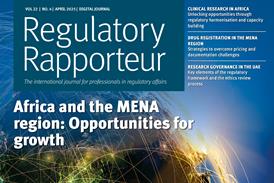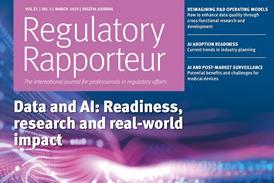The EMA has published a draft reflection paper on how artificial intelligence (AI) and machine learning (ML) can be used to support development and use – in a safe and effective way – for novel human and veterinary medicines.
The paper reflects on all areas of the medicinal product lifecycle where AI and ML may be applicable, from drug discovery through to post-authorisation phase.
It outlines the benefits that AI could bring to medicinal product development, such as its ability to rapidly individualise treatment in relation to factors such as disease characteristics and patient genotype. AI/ML modelling could reduce, refine or even replace the use of animal testing during preclinical development – according to the paper.
However, the agency recognised the challenges that AI and ML can pose, from technical failures to understanding of the impact of algorithms.
“A human-centric approach should be taken to guide all development and deployment of AI and ML,” the agency said.
“The use of artificial intelligence is rapidly developing in society and as regulators we see more and more applications in the field of medicines.”
“AI brings exciting opportunities to generate new insights and improve processes. To embrace them fully, we will need to be prepared for the regulatory challenges presented by this quickly evolving ecosystem,” said Jesper Kjær, co-chair of the joint HMA-EMA Big Data Steering Group and Director of the Data Analytics Centre at the Danish Medicines Agency.
The draft reflection paper will be open for public consultation until 31 December, 2023.
Further reading:
Draft Reflection paper on the use of Artificial Intelligence (AI) in the medicinal product lifecycle
































No comments yet